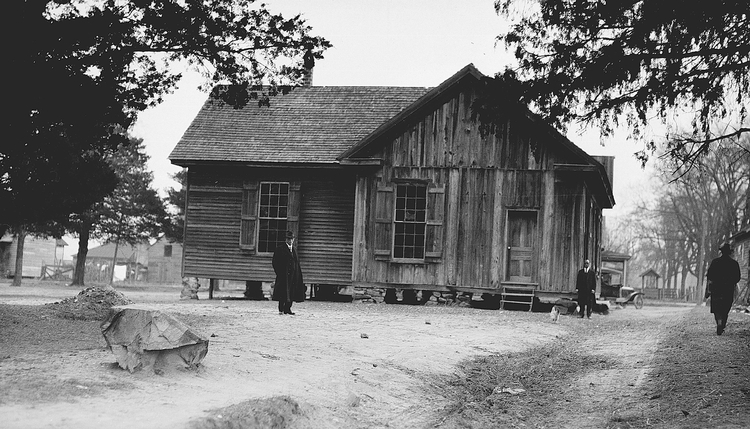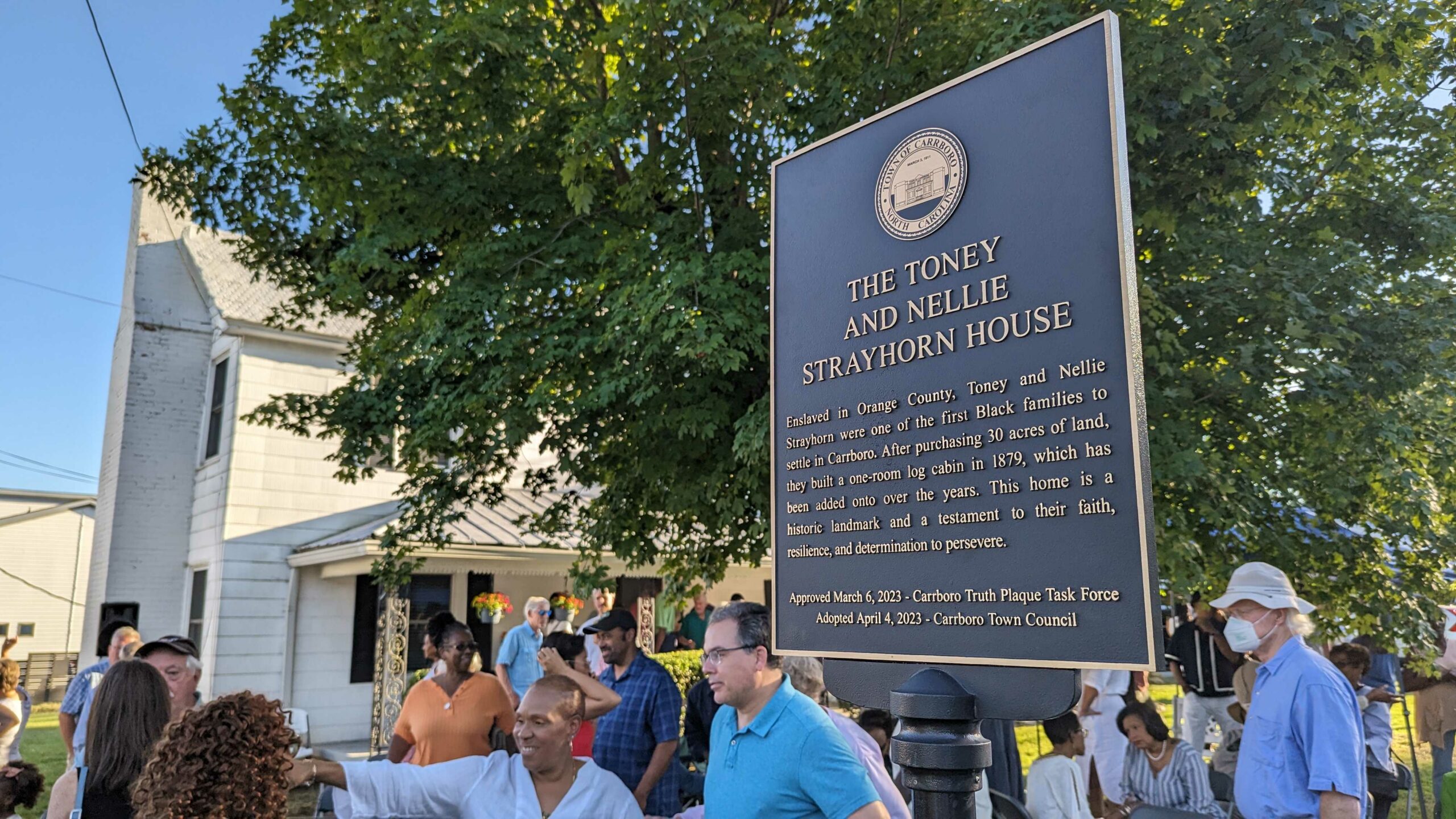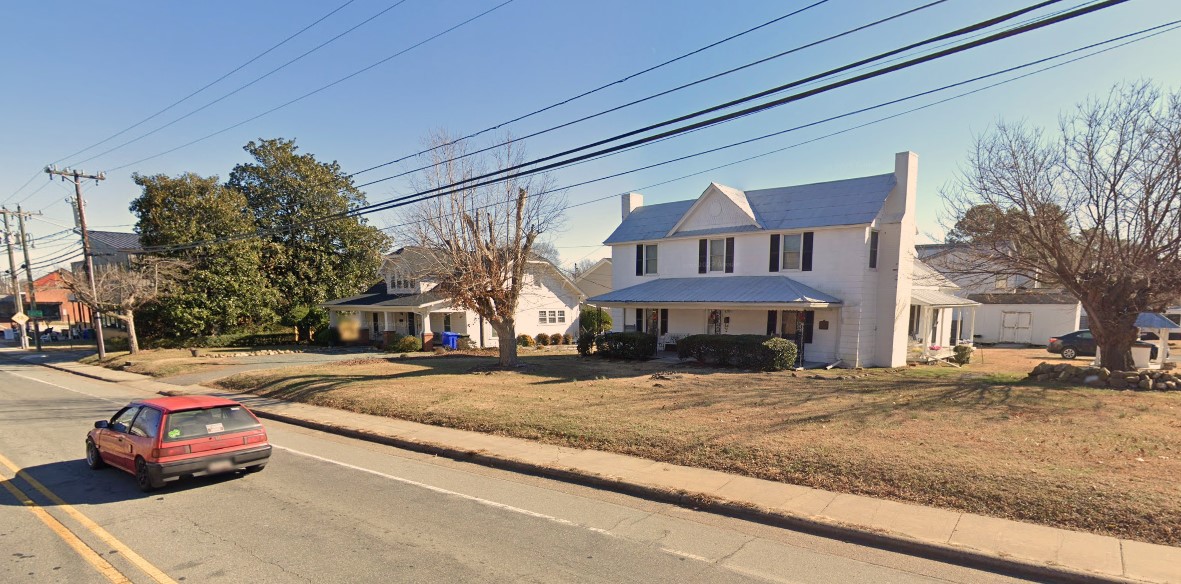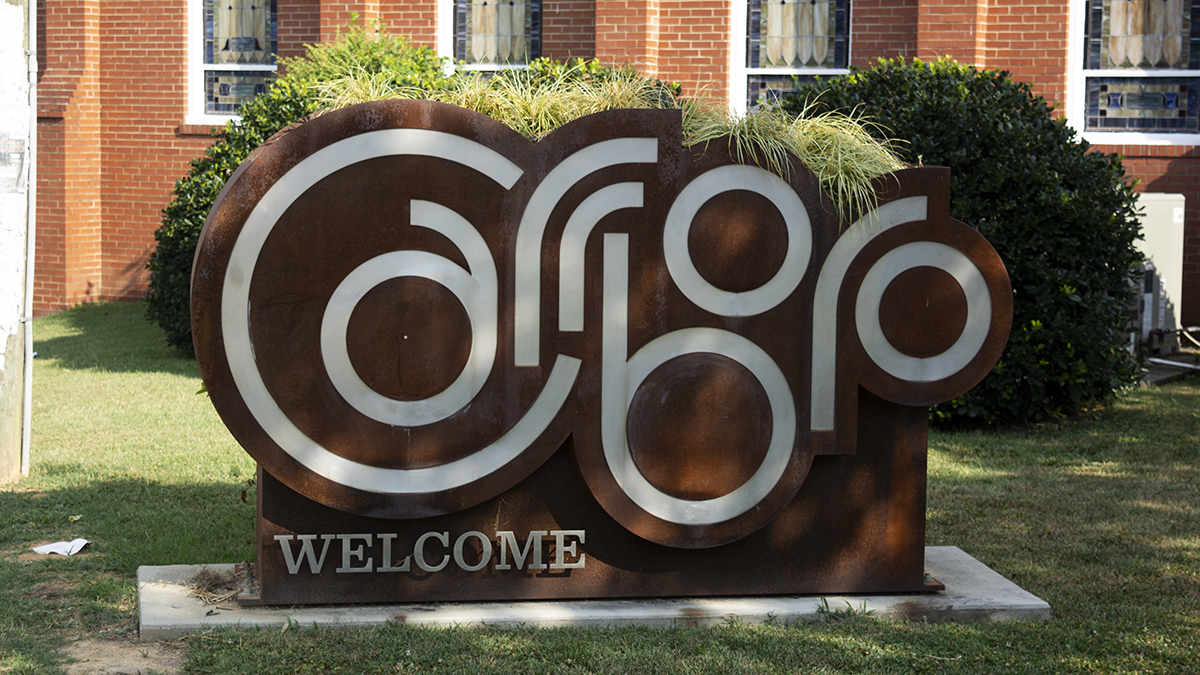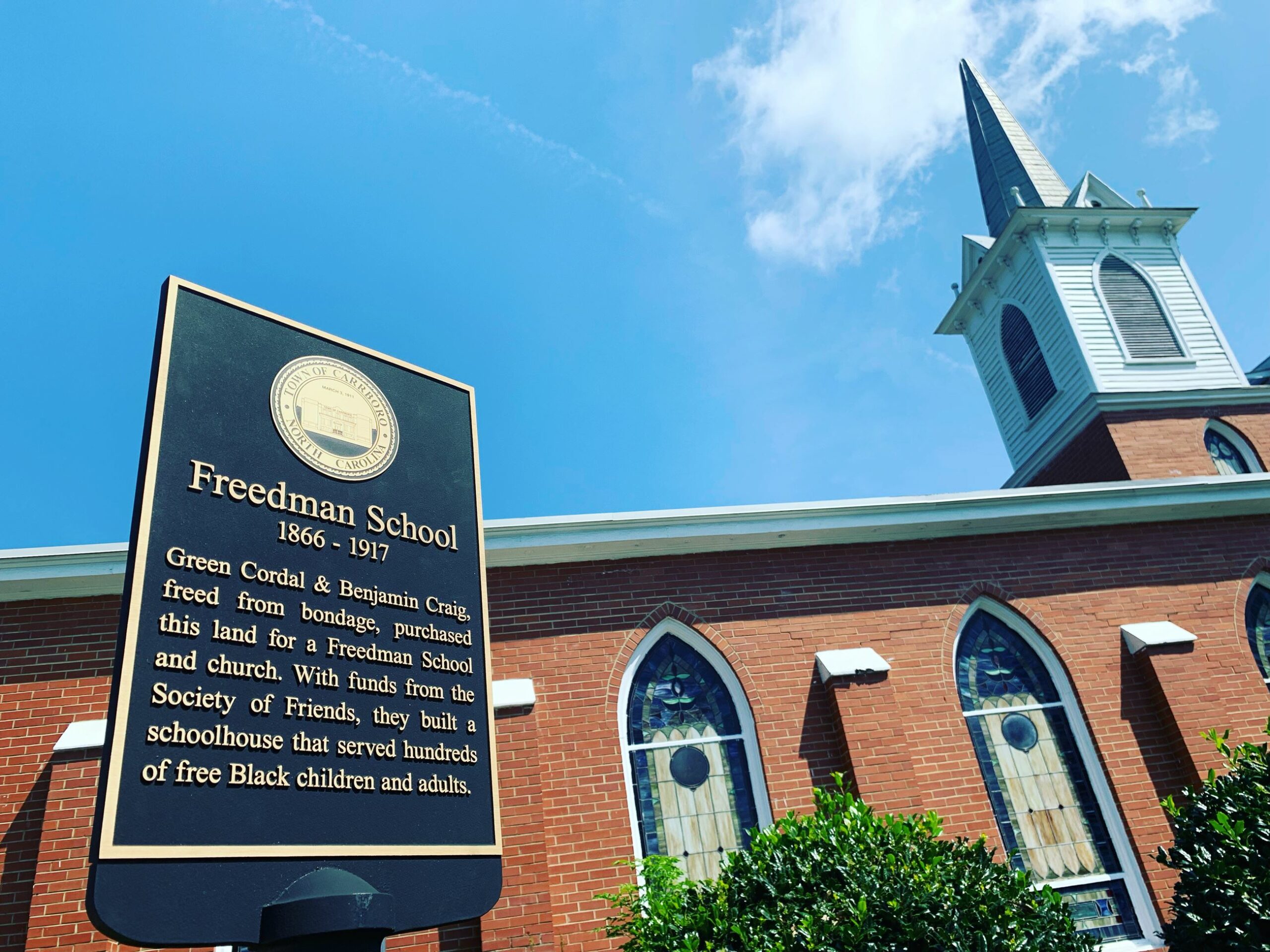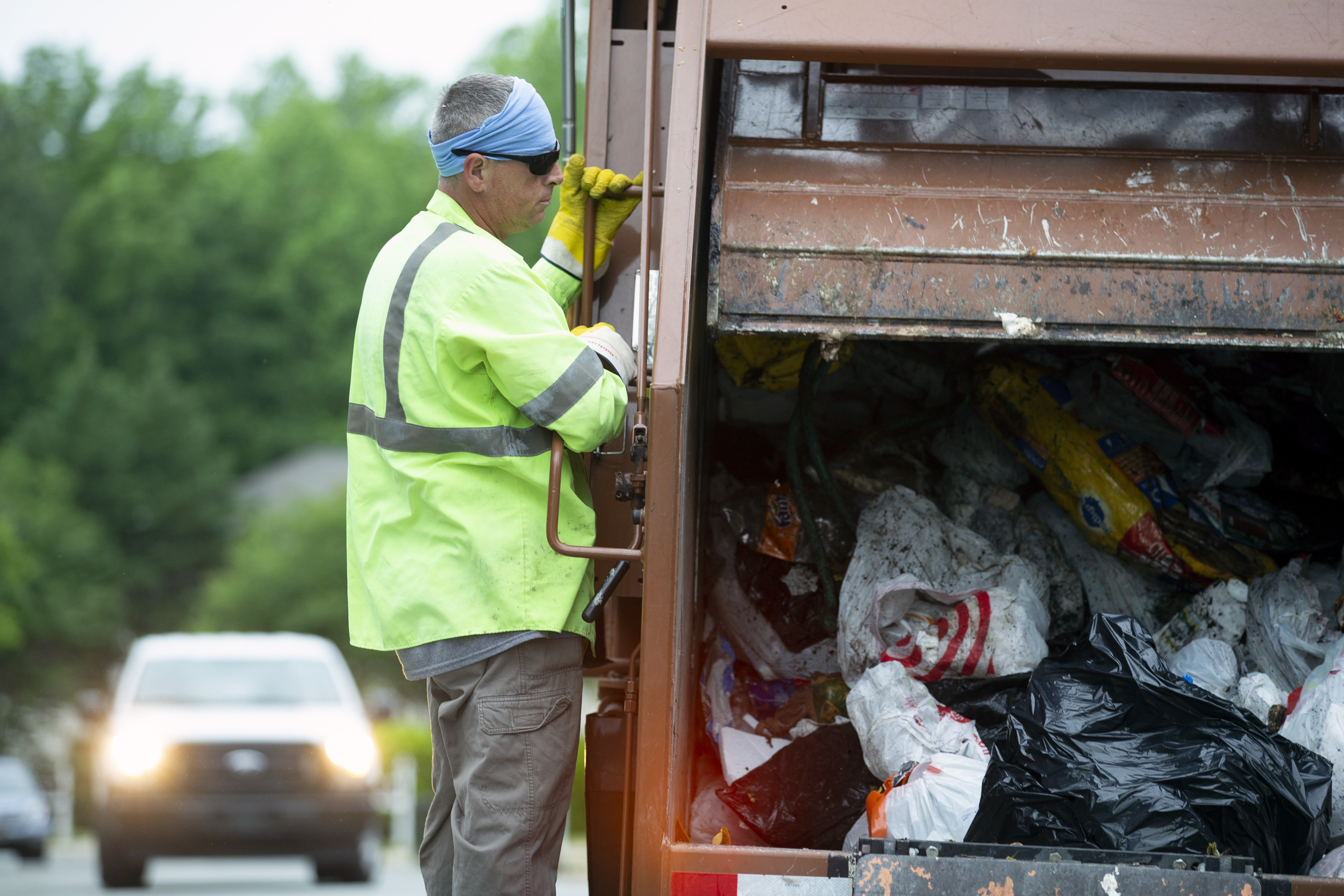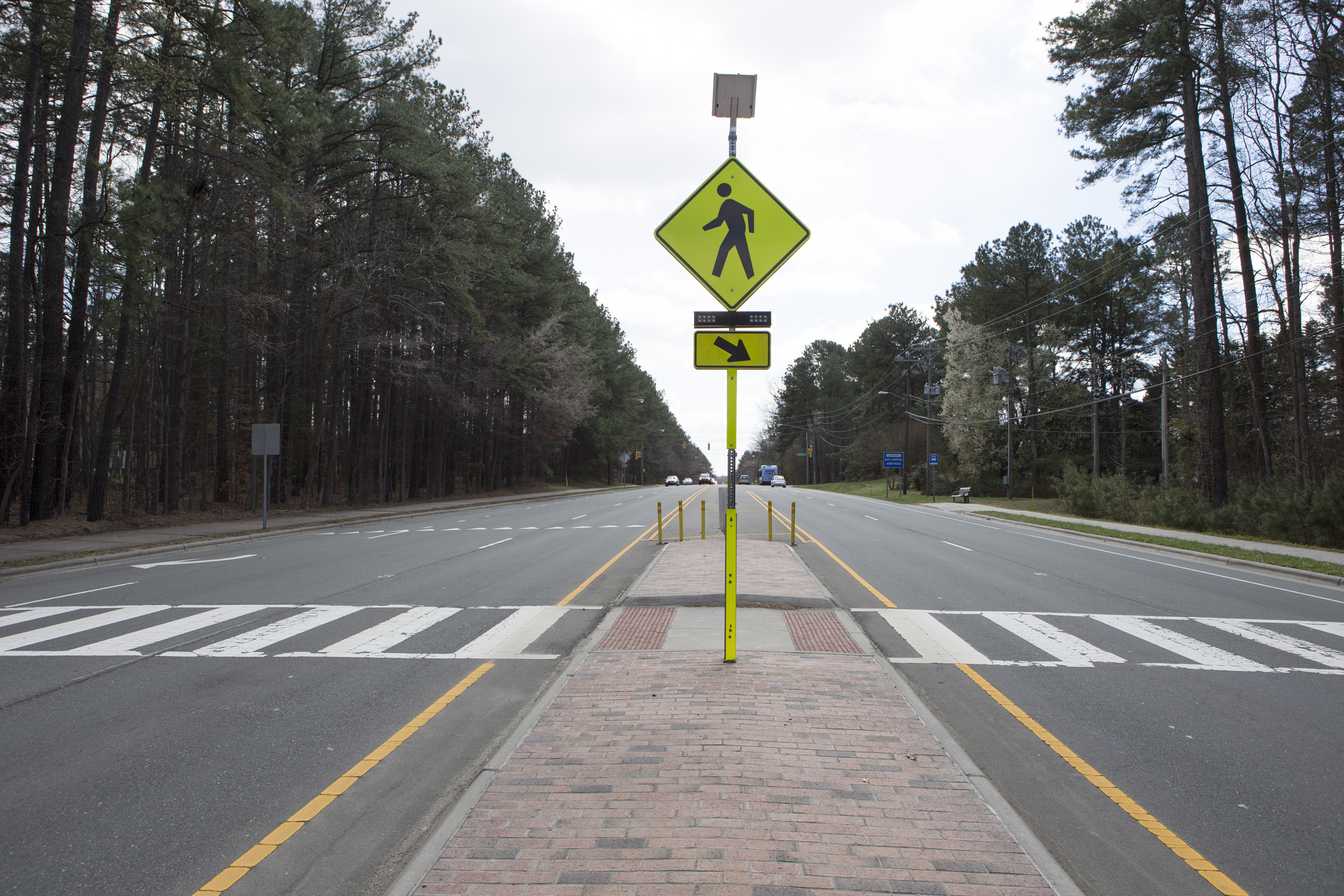The Town of Carrboro plans to implement a historical ‘truth plaque’ at the former Freedmen’s School site near the “Carrboro” welcome planter. The goal of these ‘truth plaques’ is to recognize Carrboro’s history while uplifting the truth and acknowledging an unjust past.
This will be the town’s second truth plaque – the first of which was placed in front of town hall – explaining Julian S. Carr’s ties to racial segregation. While this may be the town’s second truth plaque, recognizing the Freedmen’s school location has been in the works for many years.
When Sarah Bausell and Torri Staton were doctoral students at UNC’s School of Education in 2015, a long-awaited research project fell into their laps.
“So we were enrolled in a class with Dr. Sherick Hughes and he came in one day and said ‘Guys I was just eating frozen yogurt with my daughter and was approached by a community member – Tom Tucker – who believes that his car wash was an important site of a Freedmen’s school and he’s looking for a team to dig into that,’” Bausell said. “So as a group we took that on in the initial stages, and when the semester ended Torri and I volunteered to continue the project.”
Scattered across the nation, Freedmen’s schools were created for the south’s Black communities following the Civil War. Many of these schools were established by the Freedmen’s Bureau, a United States government agency that tried to help freed people make the transition to life as free citizens.
While it was common for emancipated Black men and women to start schools at the heels of the war, Bausell said very few school sites are currently marked.
To remedy this, Bausell and Staton set out to gather more comprehensive information on Carrboro’s Freedmen’s school, formerly located where St. Paul Church and the Carolina Car Wash currently sit. They began by talking to elders and long-time residents in the community. Staton said all of their interviewees had a spiritual, if not a direct, connection to the school.
She said education and these nationwide Freedmen’s schools were a form of protest for newly-freed peoples, as African Americans were generally prevented from receiving education prior to Reconstruction.
“Newly freed people really looked to education to strengthen their societal stance so they can really achieve what they felt the American Dream was and what was essentially owed to them after hundreds of years in bondage,” Staton said.
While talking to community elders provided a wealth of information on the school’s significance, Bausell said gathering more qualitative information required digging through census reports, scouring through old insurance maps and spending hours and hours looking through Quaker archives.
“We tracked down the original teachers of the school in records and we found all kinds of details,” Bausell said. “We basically, through the archival data, found that there was a huge international fundraising campaign just to fund this one school in Carrboro. So, we had dozens of people in England helping fund the ongoing support of this school.”
While there were many federally funded Freedmen’s schools, the one in Carrboro was unique. Bausell said the original founders of the school, Green Cordal and Benjamin Craig, purchased the land for the school at auction from the family who had previously enslaved Craig.
“So it was their vision, they had planned it – we have evidence that they had planned it – years and years before the end of the Civil War,” Bausell said.
While working to publicly recognize Carrboro’s Freedmen’s school, Staton said simply doing the research isn’t enough – it takes continued acknowledgement and education. She said confronting an unjust past with a historical truth plaque is one of the first steps to do just that.
“A lot of times when we talk about things like Freedman’s schools and gentrification and segregation, we tend to talk about it as a ‘look how far we’ve come,’” Staton said. “But a lot of these stories were hard to tell because they were stories of oppression and subjugation. While we like to align the heroic nature of people like Green Cordal and Benjamin Craig, we also have to acknowledge the society that forced them to be heroes.”
Lead photo via Open Orange NC.
Chapelboro.com does not charge subscription fees. You can support local journalism and our mission to serve the community. Contribute today – every single dollar matters.

